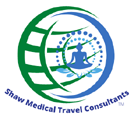It’s important you understand how to tell how good one facility is when compared to another or how good a physician is compared to another. There are many different measures currently available throughout the globe that compare medical services and health care facilities. As a layperson it may be difficult with the hodgepodge of confusing alphabet soup organizations that deliver comparative metrics to distinguish the significance of an evaluation or a grade given by these entities. So, what are some of the easily understandable and reliable ways to compare physicians and institutions across cultures and countries from a safety and quality standpoint.
The Joint Commission International (JCI) Accreditation Standards for Hospitals manual describes JCIs approach to improving quality and patient safety concerns and thereby reducing the risk to patients and to staff. The JCI Standards define the performance expectations, structures comma and functions that must be in place for a hospital to be accredited by the JCI. Although the JCI is recognized as the global gold sealed of approval, there are many other organizations that offer quality certification. JCI is responsible for accreditation of academic medical centers, ambulatory care facilities, medical transportation organizations and primary care centers. The JCI clinical care program certification (CCPC) Talking about we don’t care provides protocols for quality patient care in specific areas of expertise (Such as heart related diseases eg. acute heart attack, kidney disease , heart failure, HIV , diabetes , cancer all types etc ). Other organizations such as the LeapFrog Group, World Health Organization, The National Association of Healthcare Quality (NAHQ) and on an international front – Temos International and others.
Health care quality indices used to rank countries include The Commonwealth fund, Legatum Institute Prosperity Index, The Health care Access & Quality (HAQ) Index.
What is a benefit of accreditation to a patient?
Generally, a facility with accreditation provides a level of confidence to the patient that the facility or other health care environment has met strict criteria in patient safety, delivery of clinical care, overall patient support and more. We will give you some tips used to measure quality by JCI and other organizations to compare in these areas:
- Patient centered care/ Patient-Centric.
- Patient safety.
- What is done ie what processes and procedures are in place to prevent harm and to prevent complications as a result of your procedure or surgery.
- What checklists are used doing surgery anesthesia, and do the nurses have a process to notify physicians of a changing condition, complaints or side effects.
- What is the process for double checking accuracy of medications and blood or fluid transfusions.
- Are you given a name bracelet and is that bracelet tracked every time a new personnel or clinician approaches you or when blood is drawn or medications and tests are given or done?
- Patient satisfaction.
- You usually get a patient survey to complete and this will include things like how do you like the food , the nursing staff and other staff attitude towards you , how comfortable you were in the hospital /facility , how easy it was to get around.
- Communication, documentation and ability to contact.
- Does the staff explain your care, potential side effects, expected outcomes, and what the plan is after the treatment or procedure?
- Who will be covering in the original physicians absence.
- Care follow up.
- What is the physician and the hospitals’ plan to take care of you after the procedure or tests.
- Is this plan written out in a language that you can understand?
- Is there follow up with your physician at home?
- Is there an integrated plan meaning a nurse, social worker, dietitian, wound care specialists etc?
- Health care organization management.
- Facility quality, quality-of-care and processes.
- What is the facilities’ Process during the admission process, billing process, claim submission, collections- Fees paid upfront or a payment agreement.
- Physician training, quality.
- What is the training of the physician and team , their credentials -are they board certified and from where is the board certification (not all are legitimate).
- How many procedures have they done and what are the outcomes of the procedures.
- Who will be assisting your doctor with the procedures and what are the qualifications of these people/conditions.
- Timeliness.
- Do you get test results and follow up recommendations back timely within a few days?
- Do the clinical staff respond to your inquiries and calls within a reasonable amount of time or do you have to place multiple calls to get a response, how rapidly are you seen/is care delivered eg in the ED/ER?
- Effectiveness.
- This measure indicates that the physician and practices adhere to best-practice care guidelines and achieve expected outcomes when compared to his or their peers.
- Transparency.
- Is there willingness to share information and share data with other physicians, other facilities and with you?
- Integrated care.
- Integrated Care – Is there collaboration and a team approach to the care or is the position of one (wo)man show and not willing to consider other options or suggestions?
- Interoperability.
- Is their computer system able to talk /communicate with other computer systems such as your physician and hospital or all the positions in your care for example?
- Efficient use of medical imaging.
- Is there an excess amount of xray & related test being done eg. chest X Rays done every day while in hospital?
- Mortality.
- What is the outcome of the surgeries and other procedures that are done? – these are questions that need to be asked up front and hopefully there is written documentation to support any claims. There is usually comparisons with like specialties and among peers that are publicly available















